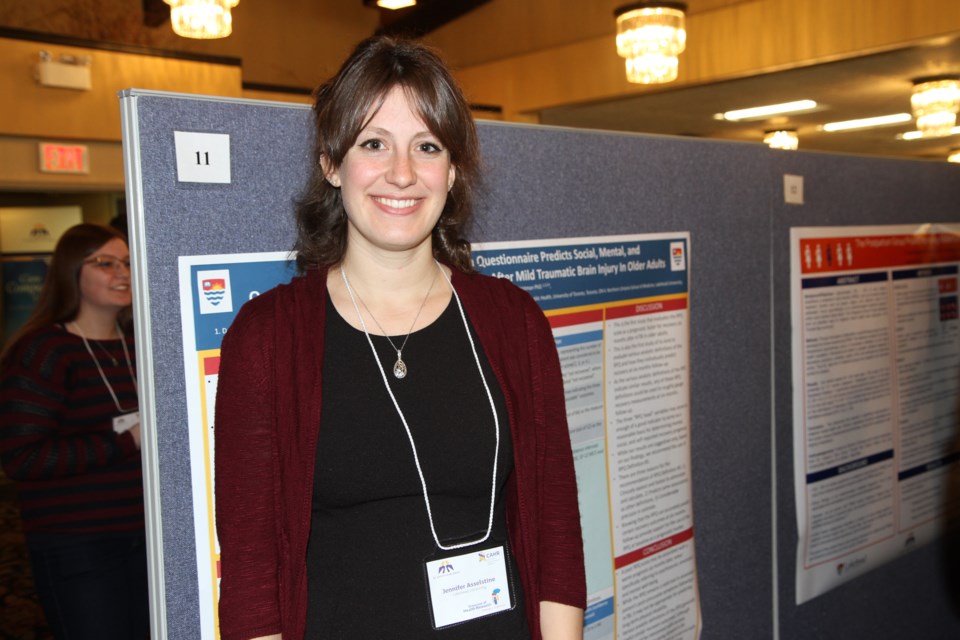THUNDER BAY -- For more than a decade, a local health research event has provided professionals, students and scientists with an opportunity to showcase research projects.
St. Joseph’s Care Group’s Centre for Applied Research hosted its 11th annual Making a Difference: 2017 Showcase of Health Research Friday, which provided the opportunity for Lakehead University student Jennifer Asselstine to share her group’s research.
The health sciences student examined the Rivermead Post-Concussion Questionnaire to see if it could be used as a predictive marker with elderly adults who have suffered a mild traumatic brain injury.
“Asking these questions in the emergency room could help predict whether elderly individuals might recover or how they might be doing six months later,” Asselstine said.
“We found out that the questionnaire does allow us to use it as a prognostic marker.”
The research indicated instead of going through all 20 symptoms, health-care professionals could ask the patient three, which would be a good indicator of how they might be doing six months later.
Asselstine said these effects are important because it’s going to help physicians save time in the emergency department.
In order to do the research, patient records in the emergency room were used and about 46 participants were contacted by phone shortly after they visited the emergency room for a concussion.
The participants were asked a bunch of questions from the questionnaire and then six months later they were contacted again to get their recovery outcomes.
“My main role was doing the analysis, so I got to do all the numbers on the computer and one of my big things was finding this other question in terms of definitions of the RPQ scale,” she said.
“I was involved in comparing how we define that and how the questions differed.”
Asselstine said the most surprising finding they discovered was that the questionnaire didn’t help with predicting physical disability six months later.
“This is a bit odd because it’s a questionnaire of physical functioning, but we found that it didn’t matter how poorly you performed on that when you came to the emergency room it didn’t predict how well you would be doing physically.”
Scientific director Dr. Michel Bedard said the event gives health researchers an opportunity to showcase the research that they are doing.
“The amount of research and the quality of research I’ve seen over the (11) years has been quite phenomenal,” Bedard said.
The event encourages discussions and foster collaboration among health-care professionals, students, and scientists.
Participants can learned about new research in Northwestern Ontario, new interventions and were able to network and develop research partnerships.
